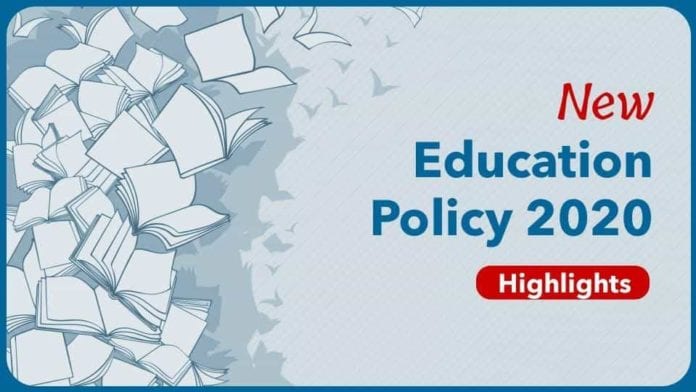The HRD Ministry is renamed as the education ministry. The Union Cabinet approved the New Education Policies framed in 2020.
Last year, the former ISRO Chief K Kasturiangan submitted the draft of the New Education Policy to the Union HRD Minister Ramesh Pokhriyal. There are many goals for 21st-century education that will be consistent with the country’s tradition and education system. The New Education Policy 2020 focuses on all the aspects of Indian Education Structure. It aims to create, regulate and govern the new system that is made while keeping in mind the inspirational goals of the 21st century. The New Education Policy aims in transforming the national sustainability into a vibrant knowledge society. It aims to provide high quality education to all.
Table of Contents
CHANGES IN NEW EDUCATION POLICY
Some of the changes in the New Education Policy are:
• Pre-primary education: New education policy will extrapolate the pre-primary education (age of 3-6 years) by 2025. Everybody will get foundation literacy and numeracy by 2025.
• Universal access to education: The New Education Policy focus to compulsory provide school education for all age group of 3-18 years by 2030. It will ensure to achieve access and participation in free.
• New education and Pedagogical Structure: The New Education Policy framed a new structure of marks of 5+3+3+4 for children of 3-18 years of age. Under this structure, students will have to complete five years of foundational stage which includes three years of pre-primary school and class 1 and 2, three years of preparatory stage that includes class 3rd, 4th, and 5th, three years of middle stage which comprises of class 6th, 7th and 8th and four years of secondary stage that includes class 9th, 10th, 11th, and 12th.
UNLOCK 3: GYMS AND CINEMAS LIKELY TO REOPEN IN AUGUST WHILE SCHOOLS AND METROS MAY REMAIN SHUT
• With the help of the New Education Policy, students will be able to comfortably choose the subject of their choice across arts, humanities, science, sports, and vocational subjects too.
• Children of 2 to 8 years age groups will actively learn their mother tongue. They will be able to learn three languages from the foundational stage.
• The formula of three languages was adopted in NEP 1968. It was endorsed in NEP 1986/1992 and in NEP 2005 also. This formula will be implemented this year also due to the constitutional provisions and aspirations of the people and the union.
ANDHRA PRADESH GOVT LIKELY TO REOPEN SCHOOLS FROM SEPT 5
• Students in our country will take a course on ‘The languages of India’ in class 6 to 8. Students in all schools in India will take at least two years course of classical language to know about these languages and their artistic treasures. After 8th, they will get an option to choose it in their secondary education too.
• Under New Education Policy, along with improved education, students at each level will get a regular opportunity in physical activity and exercise including sports, yoga, martial arts, dance, and many more with proper availability of teachers and facilities.
• For each state, a State School Regulatory Authority will be created.
• A National Research Foundation will be established to provide funds for research proposals across all disciplines.
• Rashtriya Shiksha Aayog: The New Education Policy focuses on framing a new apex body that will be headed by the Prime Minister of India. This body will be responsible for developing, implementing, evaluating, and revising the vision of education in India.
These were some of the major changes that took place while framing the New Education Policy 2020.













